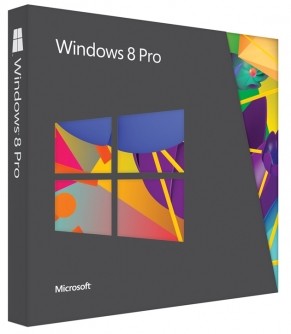A report by The Register reveals that Microsoft blames OEMs for its relatively lackluster Windows 8 sales. Purportedly, Microsoft believes vendors didn't adhere closely enough to its hardware recommendations, producing mostly non-touchscreen computers that didn't showcase Windows 8's touchable side. This information comes from a "well-placed" source familiar with the matter.
Between its October 26 release and the end of 2012, Microsoft claimed to have sold 60 million copies of Windows 8. By comparison, it took Windows Vista about six months to sell the same number, but as some like to point out, statistics like these don't always tell the whole story. Official figures on Microsoft's Surface sales are still missing in action too, although Ballmer told a French news outlet that initial Surface sales were "modest". Some analysts estimate that Microsoft has sold fewer than one million Surface tablets.
Somewhat unsurprisingly, the report also indicates that OEMs have turned the tables, assigning blame for lackluster Windows 8 sales to Microsoft. The primary reason computer-makers didn't strictly follow Microsoft's internal guidelines is that few companies were willing to risk producing millions of expensive, high-end devices that customers weren't guaranteed to snap up.
In spite of tepid sales though, Microsoft took numerous steps to make Windows 8 a success. The company hyped up Windows 8 as its most important OS since Windows 95, offered upgrades at record low prices and even created reference hardware to ship it on, in spite of possibly damaging its OEM partnerships. Interestingly, the report also uncovers a little-known effort Microsoft also bankrolled: a "contest" between computer manufacturers to create "Hero PCs". Hero PCs were 10 hand-picked computers that Microsoft would have had retailers showcase globally. Disappointing sales though forced Microsoft to call off the promotion.
The report claims that due to its underwhelming performance, Microsoft may be planning a February "re-launch" of Windows 8. What that exactly entails is unclear, but the Surface Pro and Office 2013 should also be landing on shelves that month. It sounds as though February may be a particularly busy month for Redmond.
